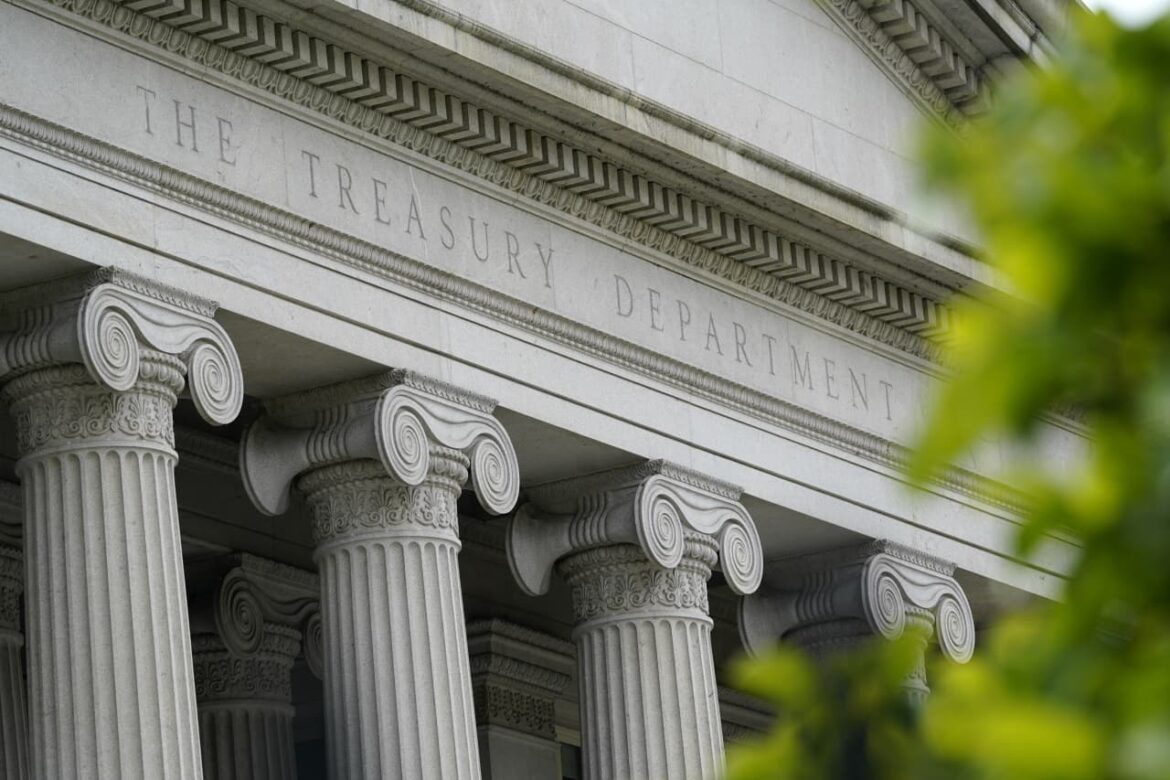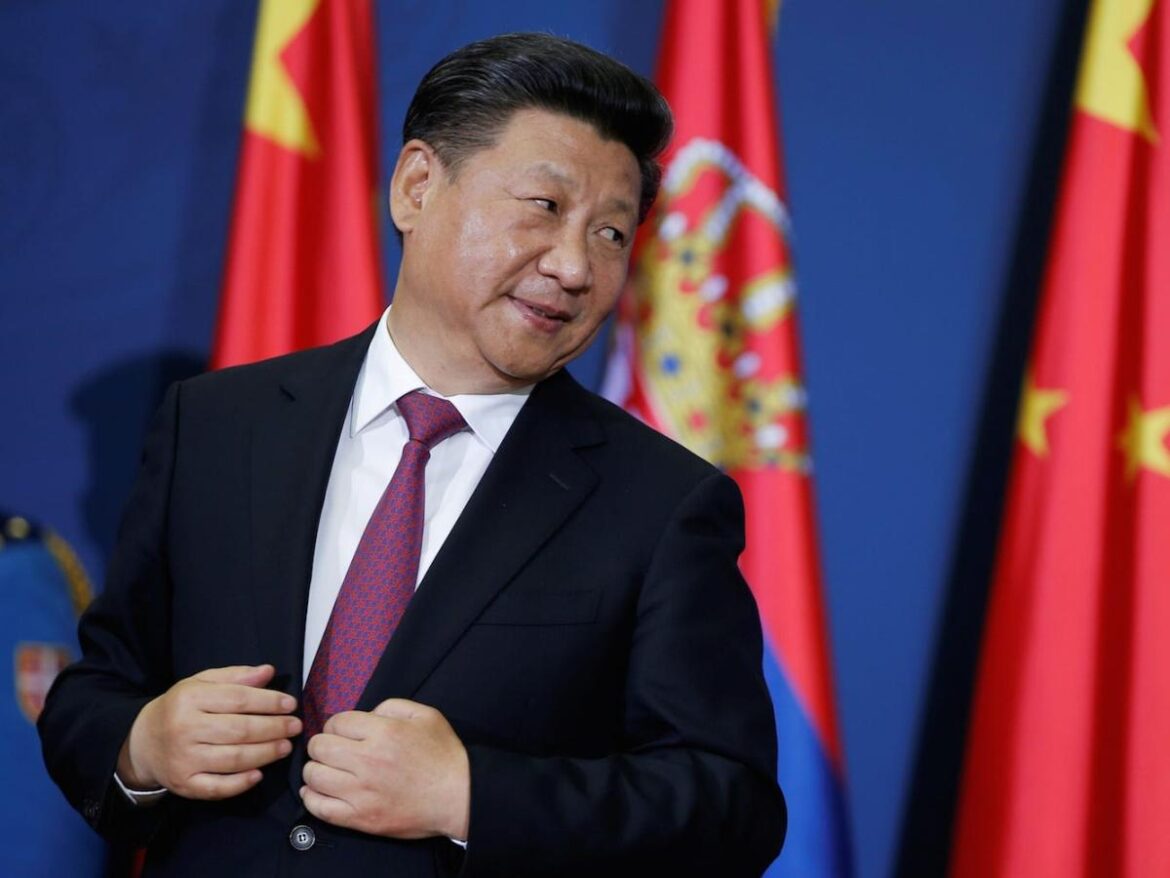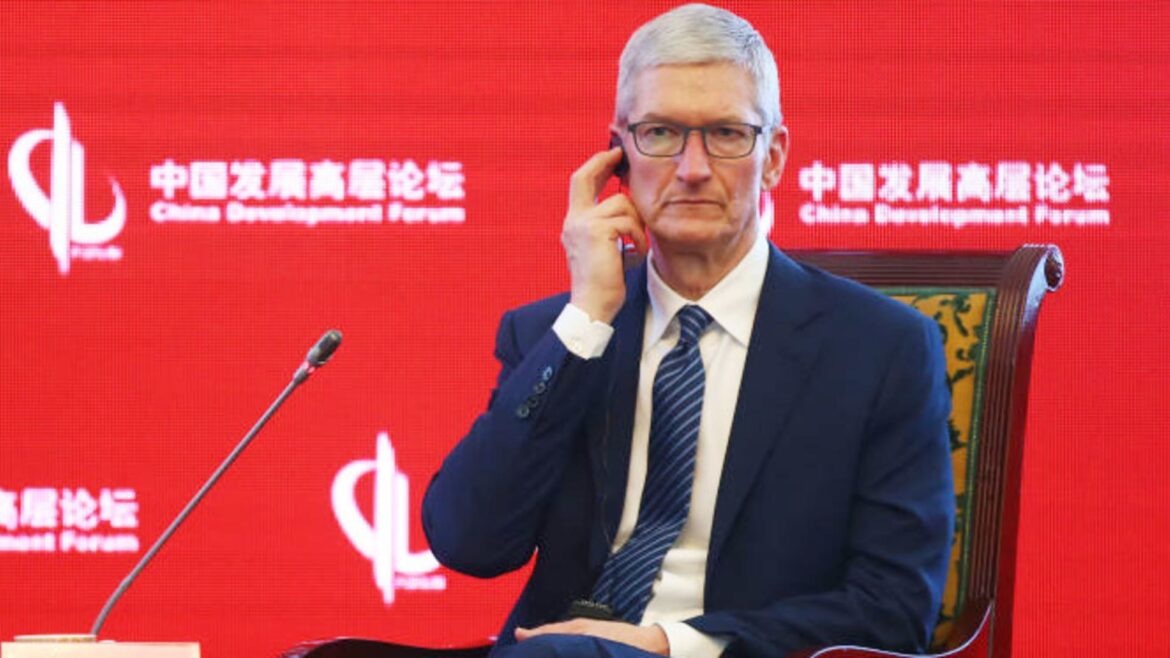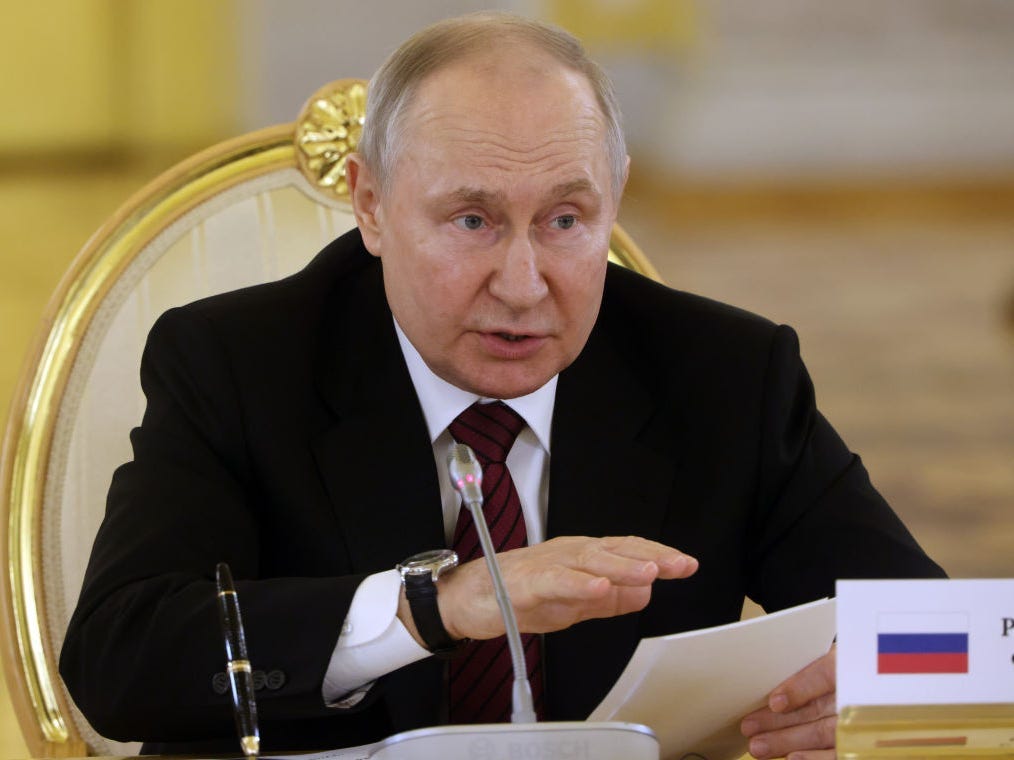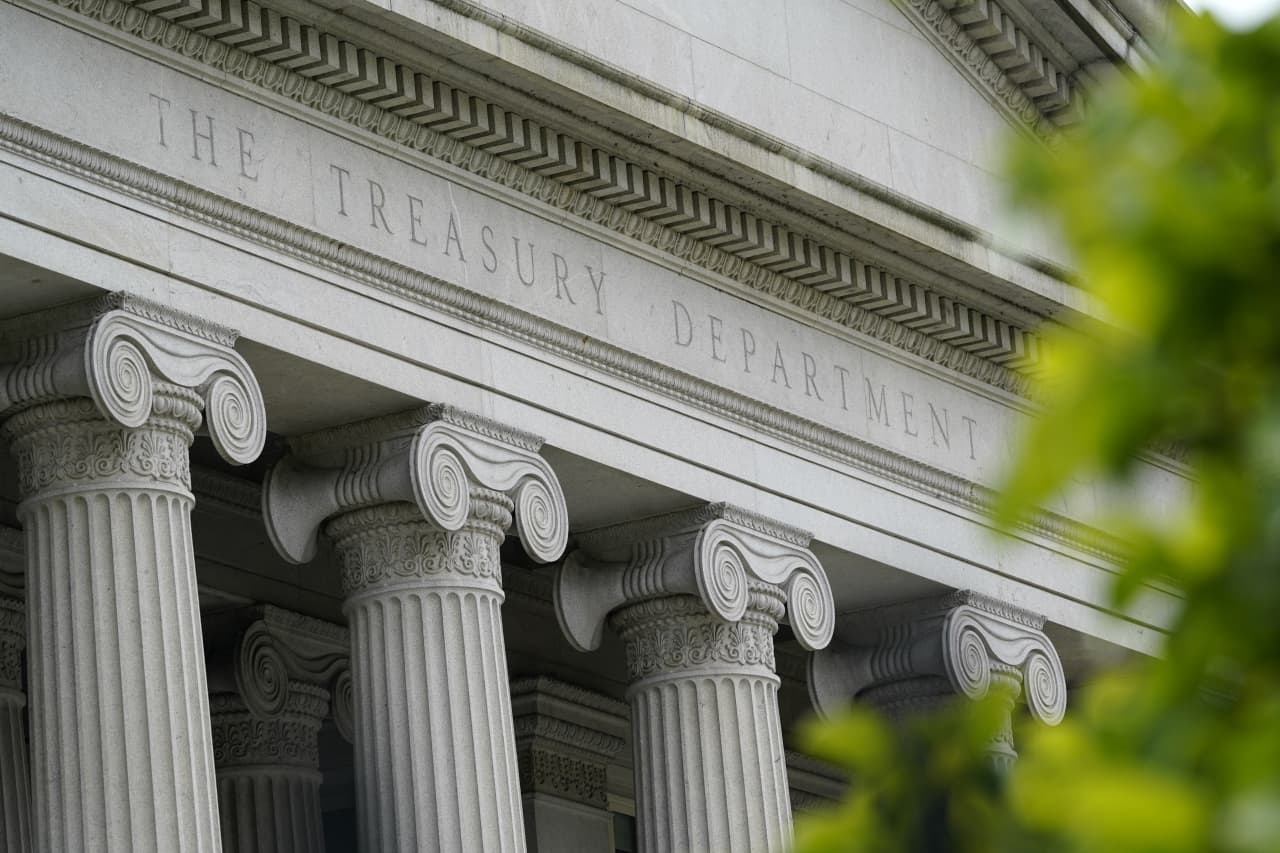
The value of Treasury bonds held by foreign investors fell to $8.02 trillion at the end of January, according to Treasury data released Tuesday.
Source link
foreign
China’s market crash could be the last straw for many foreign investors who leave permanently, think tank says

-
China’s crashing stock market could be the breaking point for foreign investors, Atlantic Council’s Jeremy Mark said.
-
The market will become more volatile as remaining investors focus on fast profits.
-
The country needs to respond to its property crisis to trigger a stable market recovery.
The decline of China’s stock market may have scarred it for the long-term, as foreign investors likely aren’t coming back, the Atlantic Council wrote on Friday.
On domestic and US indexes, Chinese firms have collectively suffered a $7 trillion hit since early 2021. The fallout could be the final breaking point for offshore traders, who are already hastening to exit amid souring outlooks on the country’s economy, Senior Fellow Jeremy Mark said.
With few reasons to jump back in, China will become the focus of investors betting on fast profits instead of stable growth.
“Investing in China likely will become the domain of foreign bargain hunters and hedge funds, some of whom already are actively trading in the market,” Mark wrote, later adding: “The fund managers who remain could end up contributing to the volatile swings in fortune that are everyday life in China’s markets.”
Beijing has responded to the financial stress in recent weeks, issuing a slew of measures meant to dampen the sharp decline. These include state-backed purchases, as well as restricted access to offshore markets and curbs on short-selling.
Although this flurry of efforts has triggered a rally this week in Chinese indexes, a more forceful recovery will depend on Beijing’s handling of broader crises, Mark noted.
China’s property market is the leading concern, considering the sector accounts for around a quarter of the nation’s GDP. Once a rapidly growing industry, its dependence on high leverage has resulted in a massive default wave, with real estate giants forced to liquidate.
Foreign investors have been disenchanted by Beijing’s slow response, while the government’s 2020 crackdown on the tech sector provided another incentive to move out of Chinese markets, Marks noted.
The stock exodus has largely been led by passive funds, as well as investors focused on long-term growth. Net foreign inflows last year reached only $6.1 billion, the lowest level since 2017.
It’s had a direct impact on China’s startup scene, with the country’s IPO market drying up as new companies search for cash.
“Even if the economy and property market bottom out in 2024, there are worrying signals about the government’s intentions for stock investors. Over the past few months, there have been various pronouncements directed at financial markets that suggest less tolerance for business as usual,” Marks said.
Read the original article on Business Insider
DeFi could solve Africa’s foreign exchange problems, neobank CEO says

Forex liquidity and currency swaps are hard to access for many in Africa, which limits the use of United States dollar-based services in the continent’s import-dependent economies. This creates a vacuum that decentralized finance (DeFi) could solve, leveraging cryptocurrencies, blockchain networks and services, according to the CEO of Canza Finance, Pascal Ntsama IV.
Speaking with Cointelegraph, the CEO and co-founder of Canza Finance — a neobank enabling decentralized cross-border payments for Africans — said that Canza’s new DeFi technology, Baki, aims to address this challenge by providing decentralized foreign exchange (FX) for African currencies, enabling slippage-free swaps at central bank rates. It also seeks to create a hub for businesses to participate in intra-African and FX trades at a reduced cost.
When exchanging local African fiat currencies, funds exit Africa, causing inflation in the dollar value and increased costs due to currency slippages. Baki addresses this by enabling traders to swap currencies without loss, trading at official central bank prices.
DeFi in Africa is projected to show an annual growth rate of 21.99% and reach over half a million users by 2027. However, industry experts have argued for revisions to these projections as grassroots penetration of blockchain products continues to record new highs.
In response to whether Baki’s services would work in countries like Nigeria, where blockchain technology has yet to be broadly adopted even after approval, Ntsama said Baki is built to work with the current regulatory climate as it leverages existing user behaviors to tackle problems with blockchain technology. He maintained that a positive shift in regulation would bring more industrial and institutional adoption for Baki.
Related: Kenyan lawmakers ask local Blockchain Association to come up with crypto bill
Ntsama said that in a conventional FX swap, the agent assumes local currency risk until they can recycle the position, necessitating the pricing of that risk for the buyer. Baki reduces these risks by swapping similar currencies at the official rate, enabling the agent to swap again with minimal slippage when entering U.S. dollar positions.
According to Ntsama, users and entities providing liquidity for Baki earn yield from the 80 basis points fee charged on every currency swap in the system. This yield is split 50% to the liquidity providers, 25% to Canza Finance native tokenholders and 25% to Canza Finance itself.
Magazine: Bitcoin in Senegal: Why is this African country using BTC?
China says it hasn’t banned iPhones or foreign devices for government
Apple CEO Tim Cook attends China Development Forum 2017 – Economic Summit at Diaoyutai State Guesthouse on March 18, 2017 in Beijing, China.
VCG | Getty Images
China has not instituted any laws or regulations prohibiting government employees from using or buying foreign phones, the Chinese Foreign Ministry said Wednesday, addressing media reports that said government staffers had been banned from using Apple iPhones.
“China has not issued any laws, regulations or policy documents prohibiting the purchase and use of mobile phones from foreign brands such as Apple,” a Ministry of Foreign Affairs spokesperson said at a regularly scheduled briefing Wednesday in Beijing.
Apple shares dipped as much as 4% last week after The Wall Street Journal reported that staffers at central government agencies had been banned from using iPhones for work and even from bringing the smartphones into government offices, citing people familiar. Bloomberg reported that China planned to extend the ban to government-backed agencies and state-owned enterprises, citing people familiar.
The Journal reported that the instructions were given out verbally or in chat groups but that there was not formal guidance on the matter. The Foreign Ministry specifically denied the existence of any official policy barring foreign phone use but did not address the informal guidance reported by the Journal.
Apple shares were down less than 1% in early trading Wednesday, a day after the company announced the new iPhone 15.
The response from the Foreign Ministry spokesperson also noted unspecified “security incidents” linked to iPhones.
“We have indeed noticed recently that many media have exposed security incidents related to Apple mobile phones,” the spokesperson said. “The Chinese government attaches great importance to information and network security.”
— CNBC’s Eunice Yoon contributed to this report.
Russia says it will not let foreign banks exit the market easily — unless they unfreeze Russian assets

-
Russia’s deputy finance minister said the country would not let foreign banks exit the market easily, Reuters reported.
-
Russia’s decision to allow the banks to leave would “depend on the decision to unfreeze Russian assets,” he said.
-
Russia has been imposing punitive measures on companies exiting the Russian market.
Russia is imposing increasing costs for corporate breakups by foreign banks — it’s now demanding they unfreeze Russian assets if they want to exit the market.
“We have stated our position, and it stands — we will be tough in letting foreign banks go, it will depend on the decision to unfreeze Russian assets,” Alexei Moiseev, Russia’s deputy finance minister, said at a forum on Friday, Reuters reported.
Western nations and their allies have frozen more than $300 billion in Russian central bank assets abroad as part of their sanctions on Russia over its full-scale invasion of Ukraine in February 2022. It’s not clear how many of these Russian assets were frozen by Western banks.
Moiseev’s comments come as President Vladimir Putin’s regime continues to impose increasing punitive measures on companies trying to exit the Russian market.
Despite 1,000 companies announcing they were voluntarily cutting back on operations merely two months after the Ukraine war started in February 2022, just 535 foreign companies have made a clean break with the country, an ongoing study from Yale University that was last updated on September 3 has found.
But it’s not for lack of trying: Over 2,000 companies were seeking approval to exit the Russian market, but the progress has been slow due to logistical delays, among other reasons.
Moscow also charges exiting companies an exit fee of at least 10% of the sale value of the local business. In addition, the Russian government started requiring sellers from “unfriendly countries” to donate at least 10% of the sale proceeds to the Russian budget from March 2023.
Raiffeisen Bank — the largest Western bank still operating in Russia and working on a sale or spin-off of its local business — said in its half-year report released on August 1, “The local and international laws and regulations governing the sale of businesses in Russia are subject to constant change.”
Moiseev said at the Friday forum there was one foreign bank applying to sell its assets in Russia, Reuters reported. He did not name the bank but added that Raiffeisen had not made such an application.
China’s Big Four banks are lending billions of dollars to Russia
While Western banks have reduced or are working on reducing their exposure to the Russian market, Chinese banks are trying to fill their shoes.
The Kyiv School of Economics found China’s Big Four banks — the Bank of China, Industrial & Commercial Bank of China, China Construction Bank, and Agricultural Bank of China — had more than quadrupled their lending to Russia between February 2022 and March 2023, the Financial Times reported Monday.
The big four Chinese banks had a combined exposure of $2.2 billion to Russia’s banking sector at the beginning of February 2022. That jumped to nearly $10 billion at the end of March 2023, the FT reported.
Russia’s finance ministry, Kyiv School of Economics, Bank of China, Industrial & Commercial Bank of China, China Construction Bank, and Agricultural Bank of China did not immediately respond to requests from Insider for comment. The Chinese banks declined to comment to the FT.
Read the original article on Business Insider
Russia says it will halt foreign currency purchases and launch a digital ruble to keep the currency from spiraling further
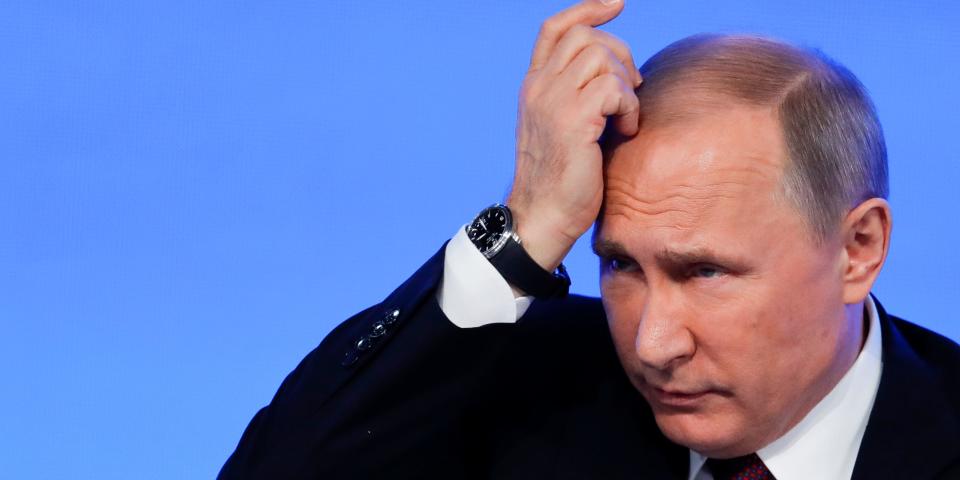
-
Russia is scrambling to keep its ruble from falling further in value.
-
The nation’s central bank announced it would stop foreign currency purchases through the end of 2023.
-
It has also begun to pilot program for a digital ruble in an attempt to prop up its currency.
Russia is halting its purchases of foreign currencies, and is launching a digital version of its ruble as it scrambles to prevent its currency from spiraling even further as war drags on in Ukraine.
The nation will no longer purchase currencies on the global market from August 10 through the end of the year, Russia’s central bank said in a statement on Wednesday. It will, however, continue to sell foreign currencies located in its sovereign wealth fund worth up to 2.3 billion rubles or $23 million dollars a day, which it has been using to help fund its war against Ukraine.
In a separate statement, the central bank added it had begun pilot testing a digital version of the ruble, which it has planned to do since July to prop up its weakening currency.
The digital ruble will be tested with a limited number of clients across 13 banks, though the Russian central bank aims to launch the currency for public use by 2025.
The moves are part of Russia’s efforts to prop up its weakening economy, with the ruble recently plunging to its lowest level since Russia began its invasion of Ukraine in 2022. The nation has been slammed by sanctions which have slashed Moscow’s energy revenue.
In July, the ruble blew past a key “comfort zone” for the Kremlin in the aftermath of Wagner’s short-lived rebellion, sparking concern as Russia’s purchasing power in international markets grew weaker.
Russia’s currency slipped further on Thursday, trading at 97 to the US dollar. That’s about a 30% decline from what the ruble was worth in January, making it one of the worst-performing currencies this year.
Read the original article on Business Insider

